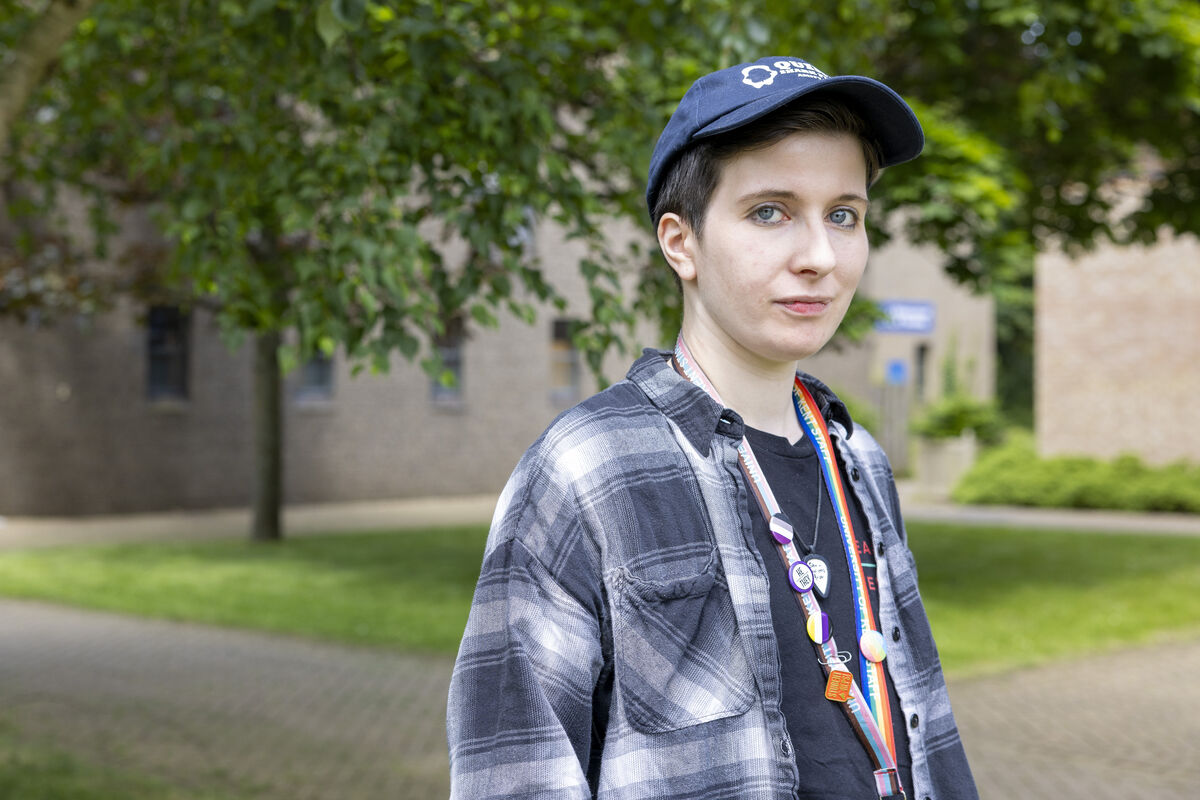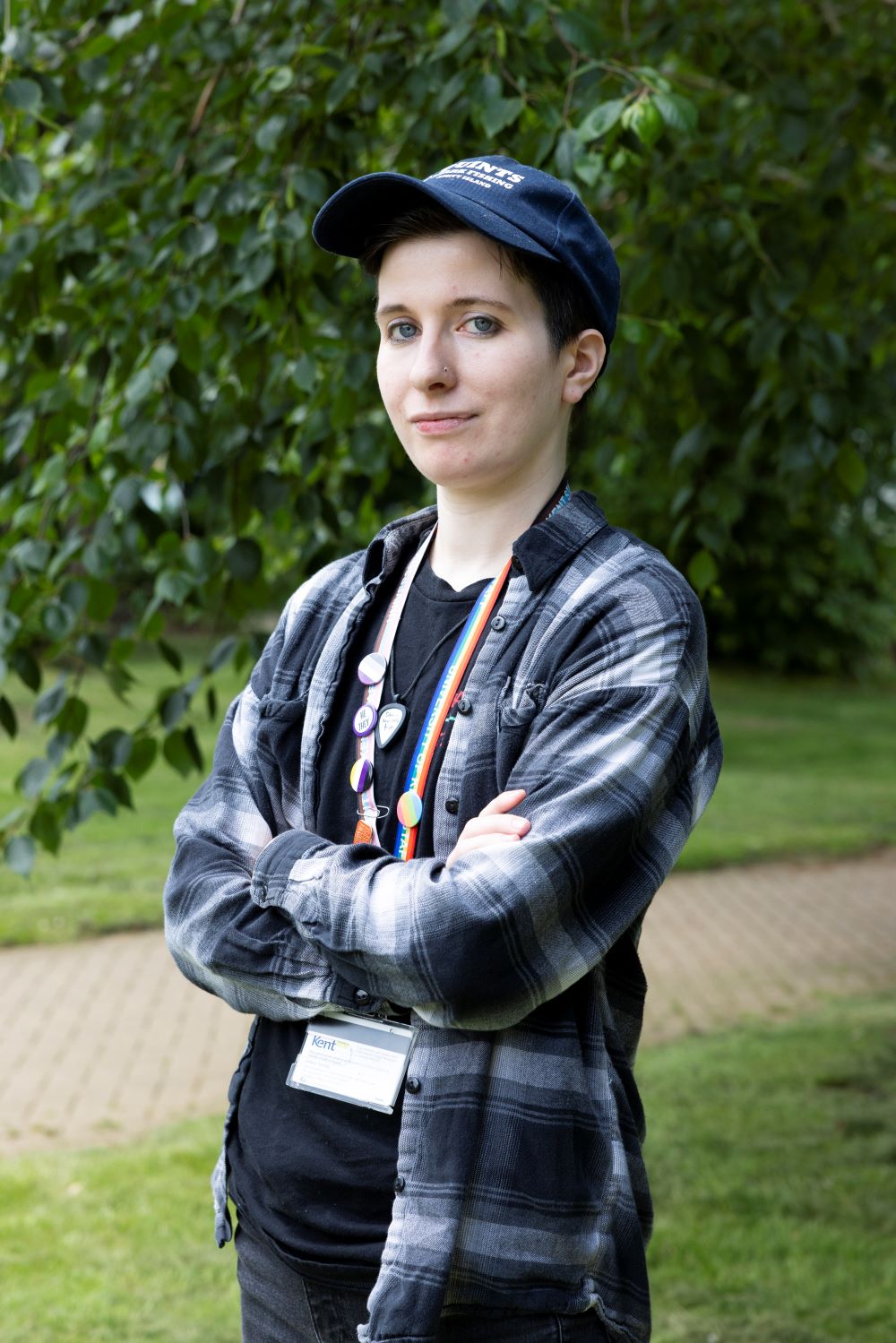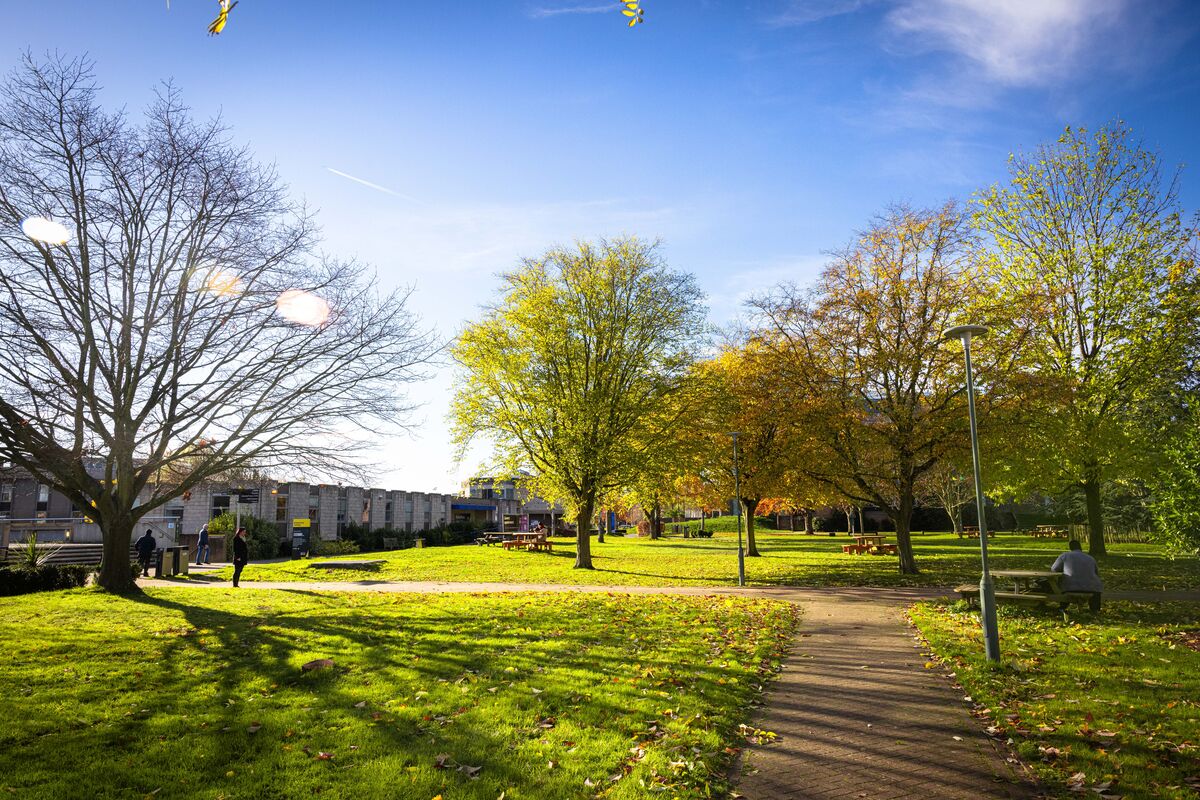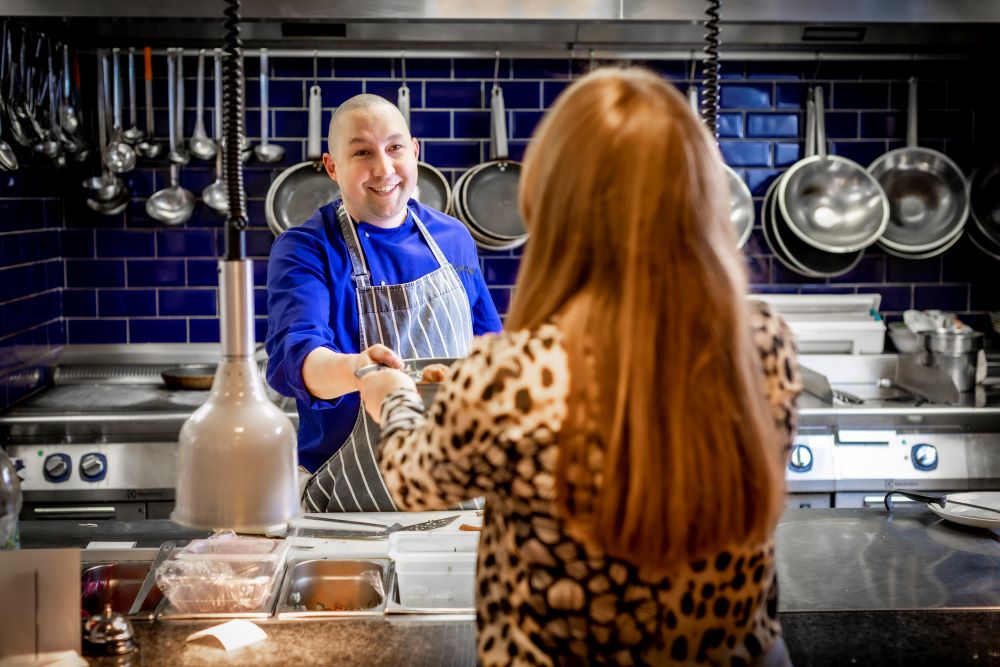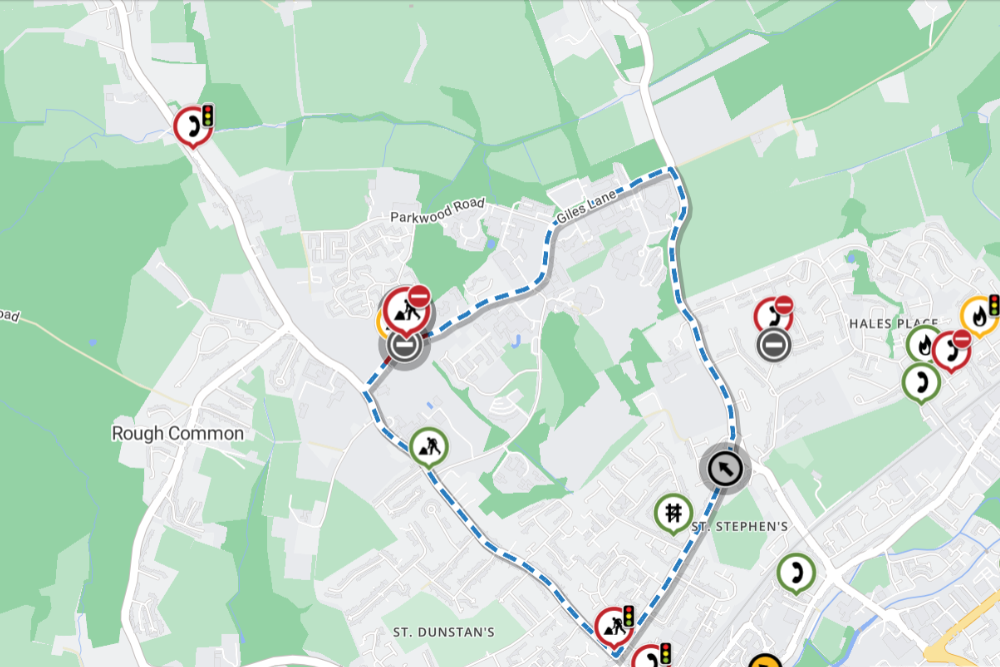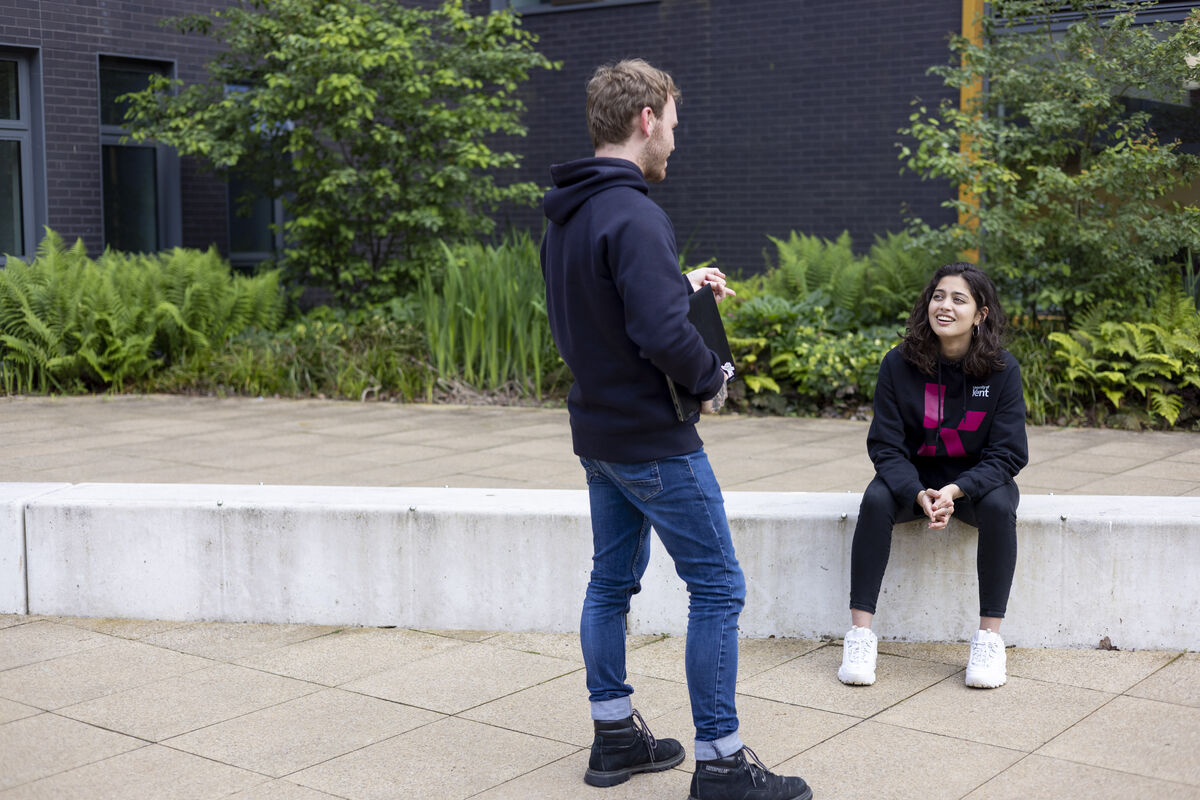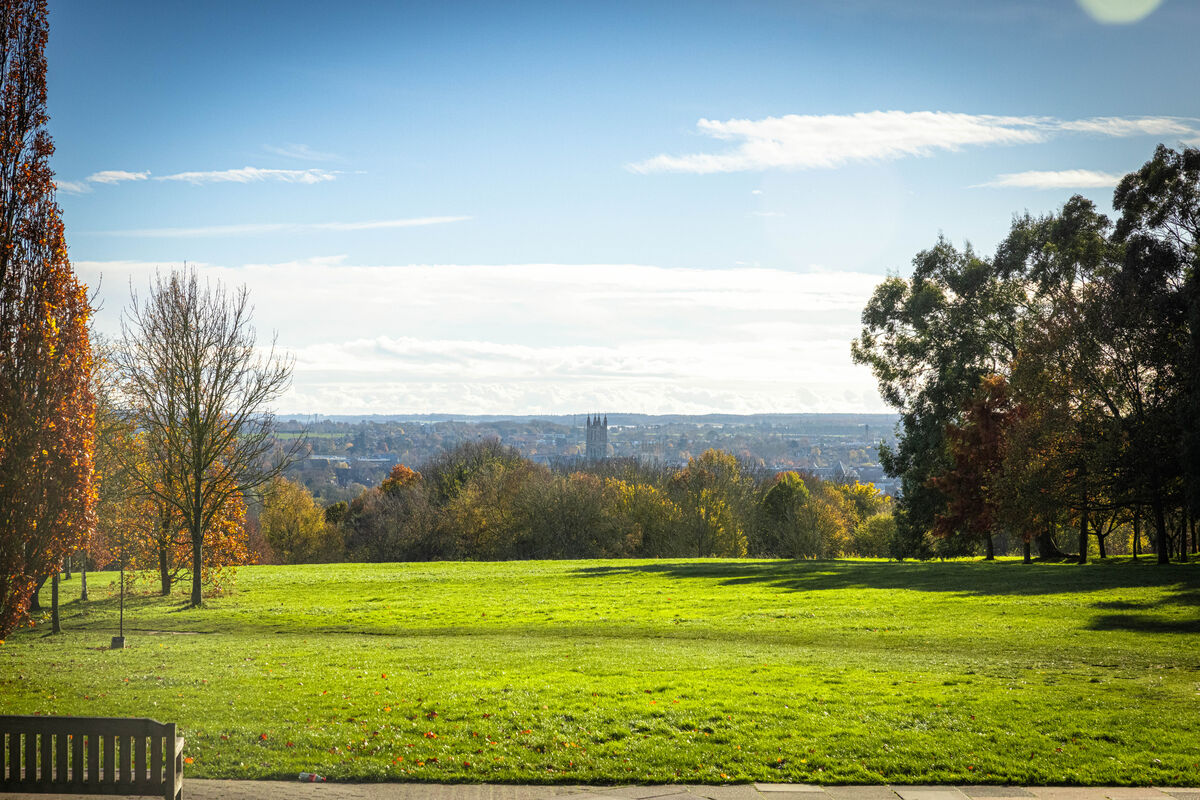This month’s Kent Star is Sid who has made a positive impact on our LGBTQ+ Kent community by being involved in the LGBTQIA+ Student Voices project, chairing the LGBTQ+ Student Network and helping with projects to make our campuses more inclusive. Hear from LGBTQ+ Leader Sid:
“I’m Sid Connor, my pronouns are they and he. I am in my final year of a PhD in Film, my thesis focuses on the representation of addiction, eating disorders and OCD in TV and film from a disability studies perspective. My research both for my PhD and outside of it usually focuses on the representation of marginalised populations onscreen, particularly intersectional identities and ideas around class, gender, race, sexuality, disability and neurodivergence. I am in the process of writing two papers on the importance of these themes in Star Trek for publication in the next year or so.”
Tell us about your work on issues for LGBTQ+ students, particularly your involvement with the LGBTQ+ Student Network and what motivated you to get involved.
“I got involved with the LGBTQ+ Student network via my work on the LGBTQIA+ student voices project. I spent 6 months at the start of 2024 really engaging with students from the LGBTQIA+ community and hearing about all the things on campus they love, and all the barriers they currently face. After meeting so many people and getting to know more about this amazing vibrant community we have on campus, I wasn’t ready to let go of the project and just hope the changes we asked for were made, so I ran for chair of the LGBTQ+ network so I could be a part of making sure the things we need actually happen.
One of the biggest things I’m working on as network chair is the decidedly unglamourous issue of equal access to bathrooms – which is something that’s really easy to take for granted but when you’re trans it can be really difficult. Last year I spent some time creating a gender neutral bathroom map (pdf) for the campus so students can see what facilities there are, but we’re also asking for more gender neutral bathrooms, and for equal access to sanitary bins and products in the male toilets so trans men don’t have to misgender themselves just because they get their period.
My other main focus is creating inclusive spaces for folks who might struggle to find their place in LGBTQIA+ community on campus – such as people who are LGBTQIA+ but also neurodivergent, disabled, mature students, etc, as well as lesser understood identities like asexual and demisexual people.”
Tell us why LGBT+ History Month is important? To you, to the LGBTQ+ community and everyone.
“I think with the current climate we’re living in, and the challenges facing the LGBTQIA+ community, particularly trans people like myself, it’s important to reflect on where we are now and how far we’ve come. LGBT+ History Month is a time to celebrate who we are and honour the activism of LGBTQIA+ people past and present who have worked and continue to work for a better world for all of us. It’s a chance to raise awareness of the issues we’re facing, whether that be transphobia, access to basic healthcare, or erasure in the media.”
What are you most proud of? What do you want your legacy at Kent to be?
“I’m proud of the fact that I have worked on behalf of other students like me who are underrepresented in higher education or face additional barriers to participation. I have been a voice for students as a student rep, a member of the Widening Participation Student Advisory Panel, chair of the LGBTQ+ network and as a researcher on the LGBTQIA+ student voices project. In particular, I have raised awareness and created spaces for communities who are often left out or marginalised even within the LGBTQIA+ community, holding the first ever asexual focused event on campus and bringing together queer neurodivergent people and subsequently founding the neurodivergent society.”
Do you have any advice for the LGBTQ+ community and/or allies at Kent?
“My advice is to do what you can to lift up the community but take care of yourself first. It’s easy to look at the state of the world and as a member of the LGBTQIA+ community feel responsible for making things better – and if you can do that it’s a beautiful thing to do, but sometimes exposing yourself to all the negativity that’s out there can be exhausting and its ok to sit out events like Pride or avoid engaging with the news for a while if it’s what you need. Your own wellbeing should always come first.
To allies the main thing I would say is listen, and please amplify the voices of the LGBTQIA+ community whenever you have chance. Stay curious – be open to learning about new identities and ways of being in the world, you might learn something about yourself in the process.
And watch a lot of Star Trek – it’s been ahead of its time for over 60 years and the casual queer representation in Strange New Worlds is everything.”
What are your plans for the next year?
“I’m in the final year of my PhD so my biggest plan is just to finish it and start getting my research out there. I also want to start seeing the plan I helped create as part of the LGBTQIA+ Student Voices Project put into action to make this a truly inclusive campus where students feel comfortable expressing and exploring their identities. On a personal level I just want to make the most of what is probably my last year as a student, make as much of a difference as I can, and hopefully have some fun whilst I’m at it.”
Do you know an inspirational student or student group? Let us know.
Learn more about the Kent Stars campaign.
